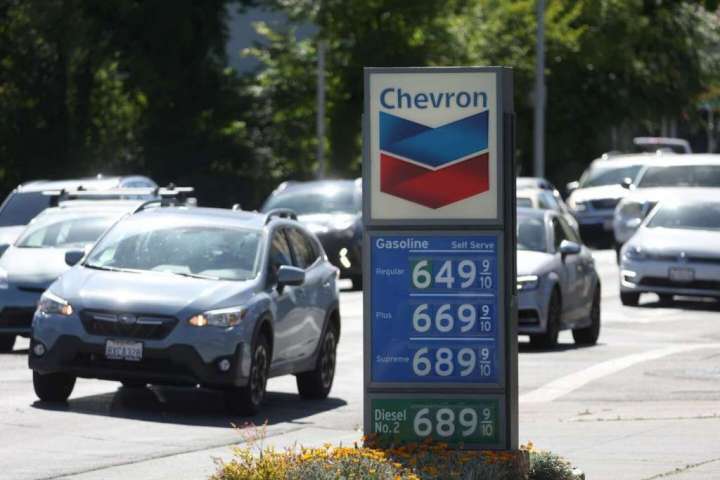Americans are mad about inflation. They’re especially outraged that gasoline averages $5 per gallon nationwide. And history suggests they may act on that furor by voting the bums out.
Here’s what voters will get if they cast their ballots based on gas prices

Republicans hope this widespread confusion will turn the midterms into a referendum on painful economic conditions and, by extension, Democratic leadership. They’re counting on voters to project their hopes and dreams — including their wildest fantasies about cheaper gas — onto Republican challengers.
But here’s the thing.
There are relatively few tools that the president and Congress can deploy to help boost oil production or moderate overall inflation. They probably won’t make a huge dent in price growth, but they could help a little on the margin. Unfortunately, these are not the things that either party is proposing right now. Democrats are grandstanding about “greed” and considering silly stuff such as export bans and price controls; meanwhile, Republicans demagogue about President Biden’s supposed “war on fossil fuels” and socialism.
Follow Catherine Rampell‘s opinions
FollowNeither party has a serious plan for dealing with inflation overall or gas prices specifically.
Assuming that Russia’s war in Ukraine continues to disrupt energy markets, then voters realistically face a choice between high gas prices and the rest of the Democratic agenda; or, high gas prices and the rest of the Republican agenda. So it’s worth considering what that “rest of” the agenda for each party actually entails.
Biden and fellow Democrats once promised a cradle-to-grave expansion of the safety net, plus measures intended to combat climate change. Love or hate this platform — I liked much, if not necessarily all, of it — it’s no longer terribly relevant to the choices voters face this November.
Democratic infighting has considerably scaled back their ambitions. Given constraints laid out by Sens. Joe Manchin III (D-W.Va.) and Kyrsten Sinema (D-Ariz.), who wield critical votes for getting anything done, Democrats at best have a shot at a more modest package focused on climate, prescription drugs, and maybe some tax increases on high-earners and corporations.
So what do Republicans stand for?
Their national leaders won’t say, even when asked directly; their state-level rising stars are mostly focused on fighting with Mickey Mouse and drag queens. But if you look at GOP actions taken over the past several years, including when they had unified control of the federal government, you get a sense of what Republicans are likely to prioritize.
Mostly, Republicans seem to care about tax cuts for the wealthy and corporations. They want to find ways to repeal Obamacare, or otherwise reduce access to health care by (for example) slashing Medicaid.
They care about installing judges who will roll back reproductive rights.
They care about supporting a president who used the powers of the state to further his own political and financial interests, rather than those of the American public he was sworn to serve.
They care about supporting a presidency whose few purported diplomatic achievements, in retrospect, look largely like an excuse to meet potential investors who might fund Trump aides’ new private equity endeavors.
They care about defending, at all costs, a president who cheered on the mob seeking to hang his own vice president.
And they care about undermining the integrity of our election system and overturning the will of the voters, if and when vote tallies don’t go their way.
Election denial is pervasive among the winners of Republican primaries so far this year; my Post colleagues Amy Gardner and Isaac Arnsdorf recently identified more than 100 GOP primary winners who back Trump’s false fraud claims about the 2020 election. Those and other election deniers are already laying the groundwork to overturn the will of the voters in the future, through legal and administrative changes at the state and federal levels.
Forty years ago, political backlash against inflation helped elect Margaret Thatcher and Ronald Reagan. As my colleague E.J. Dionne recently observed, inflation today could empower far more radical and sinister forces, in the form of politicians actively seeking to undermine democracy.
I get that voters are angry about gas prices and frustrated by some of Democrats’ recent policy choices. As readers of this column may have noticed, I’m frustrated too. But that’s mostly because I fear the much worse policy choices looming in the years ahead if Democrats don’t get their act together — and effectively cede the agenda to Republicans.






